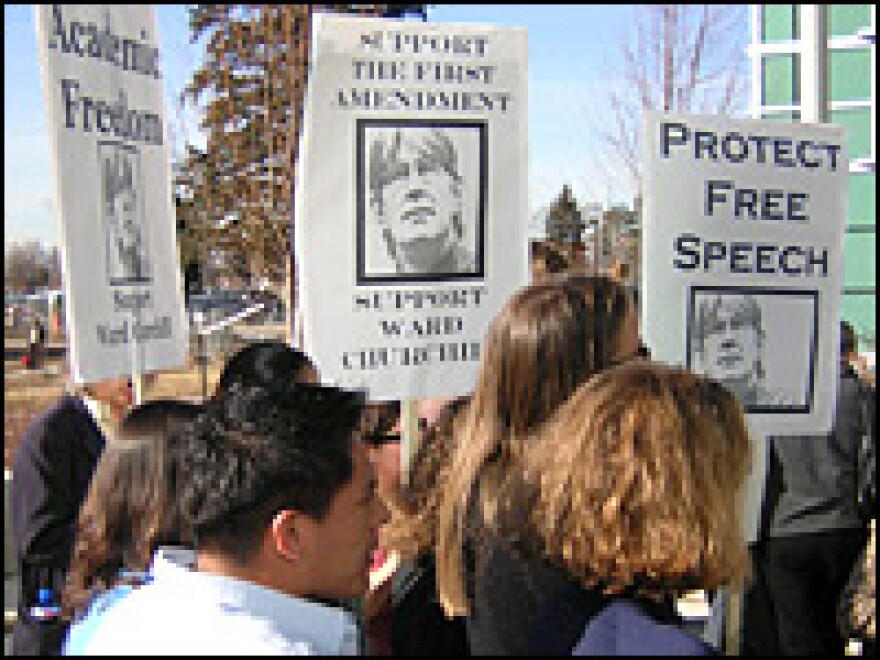
The University of Colorado is under pressure to fire a professor over remarks he made in an essay on the Sept. 11, 2001, attacks on the World Trade Center. Ward Churchill's essay described the attacks as retribution for the United States' foreign policy in the Middle East.
He also said many of the stockbrokers and bond traders who died were not innocent, due to being, as he wrote, "a technocratic corps at the very heart of America's global financial empire." Now some Colorado leaders, from senators to the governor, want him fired.
While Churchill's essay initially attracted little notice, it is now the subject of protests -- both in favor of Churchill and against him -- at the school. The controversy has also given conservatives a chance to speak out.
Saying that many college faculties now lean too far to the left, David Horowitz of Students for Academic Freedom said, "If universities weren't perceived, you know, as left-wing monopolies, I think the American public would support even having extremists on the faculty."
Professor Barbara Bintliff, who heads the university's Faculty Assembly, agrees that Churchill's ideas are controversial. But she says they also serve another purpose. "It very vividly expresses a position that must be heard in order to give us a full and fair debate of the issues."
Churchill isn't granting many interviews, but he recently said he expects to keep his job. In the past week, four universities, including his own, have canceled scheduled talks by Churchill, citing security concerns.
Copyright 2022 NPR. To see more, visit https://www.npr.org.



